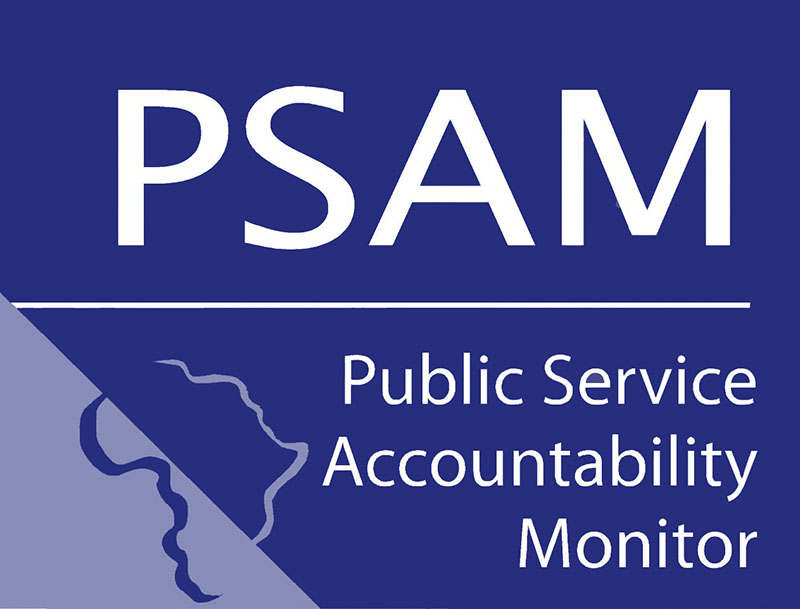By the PUBLIC SERVICE ACCOUNTABILITY MONITOR, Rhodes University
As Finance Minister Enoch Godongwana tableD his 2022 Budget for parliamentary and public scrutiny, South Africa’s public finance, health, and social welfare sectors face many harsh realities. In addition to the devastating impacts of the COVID-19 pandemic, corruption and malfeasance in the public sector have decimated public resources, posing a direct threat to the commitments enshrined in South Africa’s Bill of Rights.
Regarding allocations to critical social programmes, R 44 billion was earmarked for the Special COVID-19 Social Relief of Distress (SRD) Grant extension by 12 months to March 2023. This is an essential response to prevailing poverty and unemployment. Also announced were additional transfers for health and education to provinces, including R21.1 billion for ongoing COVID-19 relief interventions. R 2.1 billion has been earmarked for the procurement of COVID-19 vaccines. Additionally – an allocation of R8,8 between 2022/23 and 2024/25 was made towards primary health care services, including oncology and mental health care services.
However – there is much in what the Minister of Finance once again referred to as a ‘Tough Love’ Budget that is concerning. In the case of the National Health Insurance (NHI) – little clarity was provided by way of progress despite numerous calls for its rollout. This, in a context in which an estimated 87.7% of children and 84.7% of the total population in South Africa have no medical aid and are dependent on an ailing public health system. Delays in implementing the NHI constitute delays in addressing massive inequality and disparities in access to healthcare.
It is alarming that cuts of 15% in real terms (taking inflation into account) are projected to be made to budgets for healthcare. Also worrying are cuts to education budgets in the medium term and the acknowledgement by the National Treasury that “…slow growth of 1.9 per cent on the compensation of employees in basic education over the medium term will result in fewer teachers and increased class sizes in some provinces”.
Delays in addressing corruption constitute delays in prioritising social redress. The report emanating from the Zondo Commission of Inquiry reveals the considerable costs of state capture to the public purse. A vital recognition made by the Commission’s Chairperson is that “(t)hose costs do not just lie in the millions of Rands that are lost to the tax-payer. They also lie in the broken careers of people who tried to resist its stranglehold…. The costs include the precarious livelihoods of those who subsequently faced joblessness because these entities were driven into the ground. Finally, the costs lie in Cabinet decision-making that was motivated not by what was in the best interests of a state-owned entity but by the personal preferences of a President.”
To build a capable, ethical, and developmental state as promised by the President in SONA 2022, strengthening and professionalising the public services must be prioritised. We are encouraged by steps in Budget 2022 to reprioritise R36 million in 2022/23 towards investing in information and communication technology in the Office of the Chief Justice, Investigating Directorate, Public Protector of South Africa, South African Human Rights Commission and Financial Intelligence Centre. However, as with all plans – the efficacy of implementation will be vital.
The PSAM welcomes the allocation of R 426 million to the Investigating Directorate in the National Prosecuting Authority and the Financial Intelligence Centre to bolster capacity for the investigation and prosecution of criminal cases emanating from the State Capture Commission. We caution, however, that as some of these funds (R262.1 million) are channelled from existing budgets – care should be taken to avoid this occurring at the expense of other programme areas. The plans to appoint 68 permanent staff in the Financial Intelligence Centre and 90 personnel in the Investigating Directorate are also encouraging.
However, the PSAM is dismayed that despite the explicit, detailed recommendations emanating from the State Capture Commission’s reports, both the SONA and Budget 2022 failed to make decisive pronouncements on the government’s plans for their implementation. Given deep-seated corruption involving private actors and state players – the Presidency and the National Treasury’s seeming lack of urgency is worrying. A range of civic actors forming the Procurement Reform Working Group has raised concerns, for instance, about the government’s lax approach to procurement reform and anti-corruption interventions. The President has set June 2022 to articulate Cabinet’s response.
A fundamental aspect of overcoming the COVID-19 pandemic is the need to ensure open, transparent publication of COVID-19 vaccine contracts. Various civil society actors have advocated for the South African government to introduce open contracting to counter prevailing corruption and the derailing of public procurement processes. Civil society organisations such as the Health Justice Initiative are now forced to approach the courts to compel government departments to publish COVID-19 vaccine contracts. This should not be the case.
The PSAM is a Budget Justice Coalition (BJC) member and reiterates the BJC’s calls for a human-rights oriented budget.
Minister Godongwana’s budget was not tough enough on identifying and resourcing long term interventions and reforms that South Africa desperately needs to meet its human rights obligations.


